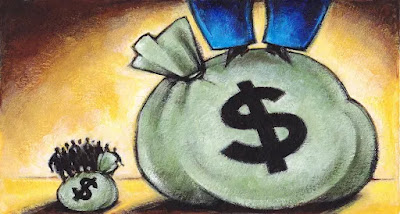Canadians are worried about the economy. Glen Pearson writes that Canadians have reason to be:
We’re right to fret, especially after the International Monetary Fund (IMF) released its grim financial forecast a week ago. Its conclusion was that the next five years will be the weakest for the global economy in more than three decades. “Ominous forces” and “uneven growth” could hinder living standards for the rest of the decade and beyond. The forecast weighs on the mind of every government in the G20. Added to this was the sobering reality of the Intergovernmental Panel on Climate Change release which stated that natural catastrophic events will increase, impacting every aspect of economic life.
Some of the turbulence feels beyond our reach: the war in Ukraine, the deterioration of US-China relations that could lead to two immense global economic blocs, environmental challenges, and political restlessness in many global locations. These are beyond Canada’s ability to manage and will inevitably impact any measures Canada takes to rekindle its economy.
This economic turbulence is fueling political turbulence:
As politics in the West becomes increasingly dysfunctional, citizens continue to check out of democracy at alarming levels. But it will get worse, as their family incomes struggle and the standard of living takes critical hits. Inevitably, people’s economic uncertainty will translate into political anger.
Economists, researchers, and seasoned voices can offer strategic guidance, but if governments refuse to listen, or opposition parties care more about gaining power than economic stability through principled cooperation, ineffective politics will lead to national disruption.
Some things within our domestic reach could be tackled to ameliorate some of our concerns. Both corporate and private debt levels are too much in the extreme. As interest rates hover at current levels, or even threaten to creep up, servicing debt can become a significant problem. Forcing individuals and corporations to tighten their belts makes sense in times of economic uncertainty, but foreclosure on those debts might become a pending reality, causing stress in the electorate.
Economic betterment is also a significant problem, as Canadians are now fully convinced they will never do as well as their parents did. That might or might not be true, but they believe it is, and it is perception that drives politics.
And that is the heart of the problem: our economic perceptions drive our political perceptions.
Image: Harvard Gazette
